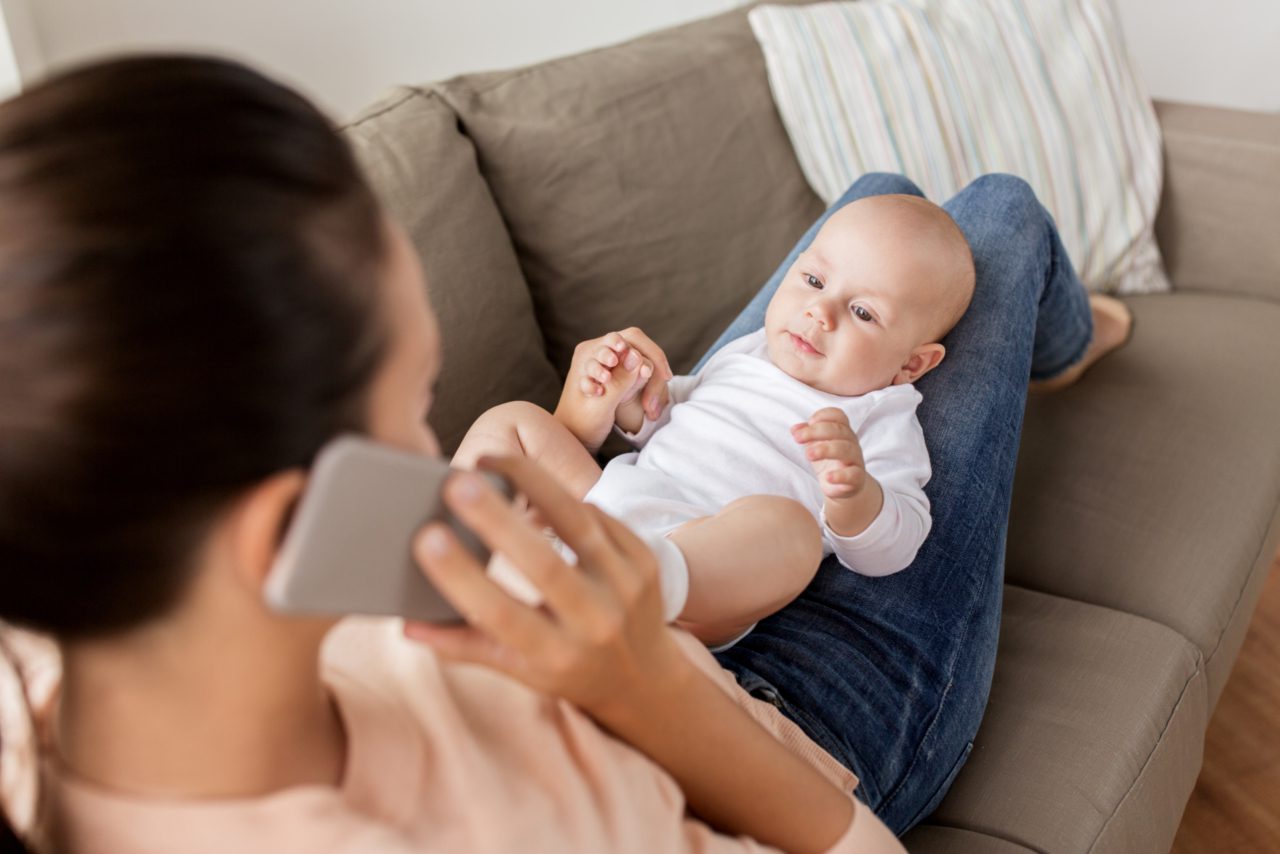According to a 2018 study, the average American adult spends more than 11 hours a day watching, reading, listening to, or interacting with media. Take a look around and you’ll see a lot of this media time is spent on our phones.
For parents, cell phones can be a lifesaver—keeping us connected to the world while we’re home alone with baby—but at the same time, it can also distract us from spending time with little ones. There’s even a word for this—technoference—to describe how technology interferes in parent-child relationships.
Research on parents’ media use brings home the challenge of balancing technology and caregiving:
- About half of surveyed parents report using a phone (either hands-free or handheld) with a child in the car.1
- When parents used cell phones during mealtime at a fast-food restaurant, children were more likely to misbehave, perhaps to get parents’ attention, and parents often responded harshly.2
- Technoference is associated with fewer positive parent-child interactions. Parents are often focused on their phones and children sometimes whine, sulk or tantrum to get their parents’ attention.3
- Cell phone interruptions during parent-child interactions can negatively impact toddlers’ learning.4
Okay, so maybe we all should probably set the phone down more. Read on for some healthy media practices for parents.
- Babies and toddlers learn through back-and-forth interactions. They hold our gaze, copy our expressions and movements, and mimic our words. Young children need positive interactions with their favorite adults in to learn, grow, and develop healthy social-emotional skills.
What to do?
- Parents can make some time, every day, media-free for young children. Turn your phone off, silence it or put it in airplane mode (no buzzing!). Give your child the gift of your attention while you build a block tower, sort laundry as a team, read stories, roll a ball back and forth, or just hang out.
- When driving, buckle your phone up (inside your bag!). Sometimes we can’t avoid having the phone out while we drive if we’re getting directions to our destination. But most of the time, phones can be silenced and stuck inside the diaper bag. Car rides are a great time to share the joy of singing really badly to our favorite songs, talking about what’s going on outside the window, and—as kids get older—answering questions like, “Are we there yet?”
- Make meal-time media-free (that means no TV either!). Talk with your children about the different foods on the plate (like their taste, shapes, and colors), what happened that day, what your child’s favorite toy or animal is, etc.
- Take phones and screens out of the bedtime routine. Put your phone to bed at bedtime. Instead, use the time before lights-out to snuggle together and share stories and lullabies.
Citations:
1 McDonald, C. C., Kennedy, E., Fleisher, L., Zonfrillo, M. R. (2008). Factors associated with cell phone use while driving in a survey of parents and caregivers of children ages 4-10 years. Journal of Pediatrics, 201, 208-214. DOI: 10.1016/j.jpeds.2018.06.003
2 Radesky, J. S., Kistin, C. J., Zuckerman, B., Nitzberg, K., Gross, J., Kaplan-Sanoff, M., Silverstein, M. (2014). Patterns of mobile device use by caregivers and children during meals in fast food restaurants. Pediatrics, 133, e843-849. doi: 10.1542/peds.2013-3703.
3 McDaniel, B.T. Radesky, J.S. (2018). Technoference: Longitudinal associations between parent technology use, parenting stress, and child behavior problems. Pediatric Research, 89(1), 100-109. DOI: 10.1038/s41390-018-0052-6
4 Reed, J., Hirsh-Pasek, K. & Michnick Golinkoff, R. (2017). Learning on hold: Cell phones sidetrack parent-child interactions. Developmental Psychology, 53(8), 1428-1436.






